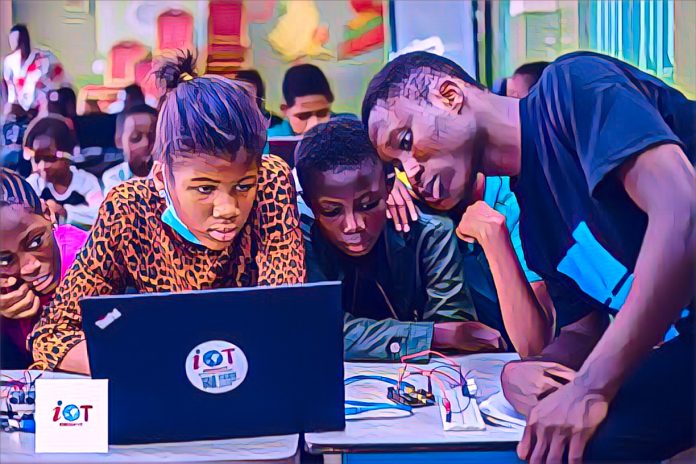KEY POINTS
- Mentorship, scholarships, and advocacy are driving girls into STEM fields.
- STEM education for girls boosts employability and economic growth.
- Girls in STEM become role models and agents of change in their communities.
Nigeria’s future lies in science, technology, engineering, and mathematics (STEM), but gender disparity still holds many girls back from these fields.
Historically, societal norms and stereotypes have limited the opportunities for girls to pursue careers in STEM. However, a growing movement is working to change this narrative.
Organizations like WAAW Foundation, Girl Up Nigeria, and Tech4Dev have stepped up to bridge this gender gap.
Through mentorship, advocacy, and financial support, they are encouraging young Nigerian girls to explore STEM careers.
Campaigns like She Builds Tech have ignited passion among young girls, proving that with the right guidance, they can excel in coding, robotics, and engineering.
These initiatives are helping break stereotypes that STEM is only for boys. By providing female role models and showcasing success stories, more Nigerian girls are gaining confidence to dream big.
Schools are also incorporating gender-sensitive teaching strategies that create a safe space for girls to learn and thrive in STEM subjects.
Training, mentorship, and scholarships drive STEM learning for girls
Training and mentorship play a crucial role in encouraging STEM education for Nigerian girls. Recognizing that early exposure to STEM boosts confidence, organizations like Tech4Dev have launched coding bootcamps and STEM workshops specifically for girls. These programs provide hands-on experience in coding, robotics, and design thinking.
Mentorship is equally vital. Many young girls lack female role models in STEM fields, so seeing women succeed in technology, engineering, and science fields inspires them to follow suit. Mentors provide guidance, support, and access to learning resources that build the girls’ technical skills and confidence.
Scholarship programs are another game-changer. For many girls from low-income backgrounds, the cost of education is a significant barrier.
By offering scholarships for STEM-focused courses, organizations are opening the door to a world of opportunities. Initiatives like the Google Women Techmakers Scholarship and the She Codes Africa Program are enabling Nigerian girls to pursue degrees in computer science, engineering, and related fields.
Impact of STEM education on Nigerian girls and the nation
Encouraging Nigerian girls to embrace STEM has a lasting impact not only on the girls themselves but also on Nigeria’s economy.
Girls who enter STEM fields are more likely to secure high-paying jobs, become innovators, and launch successful tech startups. This not only empowers them financially but also uplifts their families and communities.
At a national level, bridging the gender gap in STEM is essential for Nigeria’s economic growth.
As the country aims to become a leading tech hub in Africa, a skilled and diverse workforce is critical. When more girls are included in STEM, Nigeria’s capacity for innovation and competitiveness in the global tech industry increases.
Furthermore, STEM education enhances problem-solving, critical thinking, and digital literacy skills — qualities that are essential for the future of work.
By encouraging girls to pursue STEM careers, Nigeria is building a pipeline of future leaders, innovators, and change-makers who will drive progress in healthcare, education, and financial technology (fintech).



